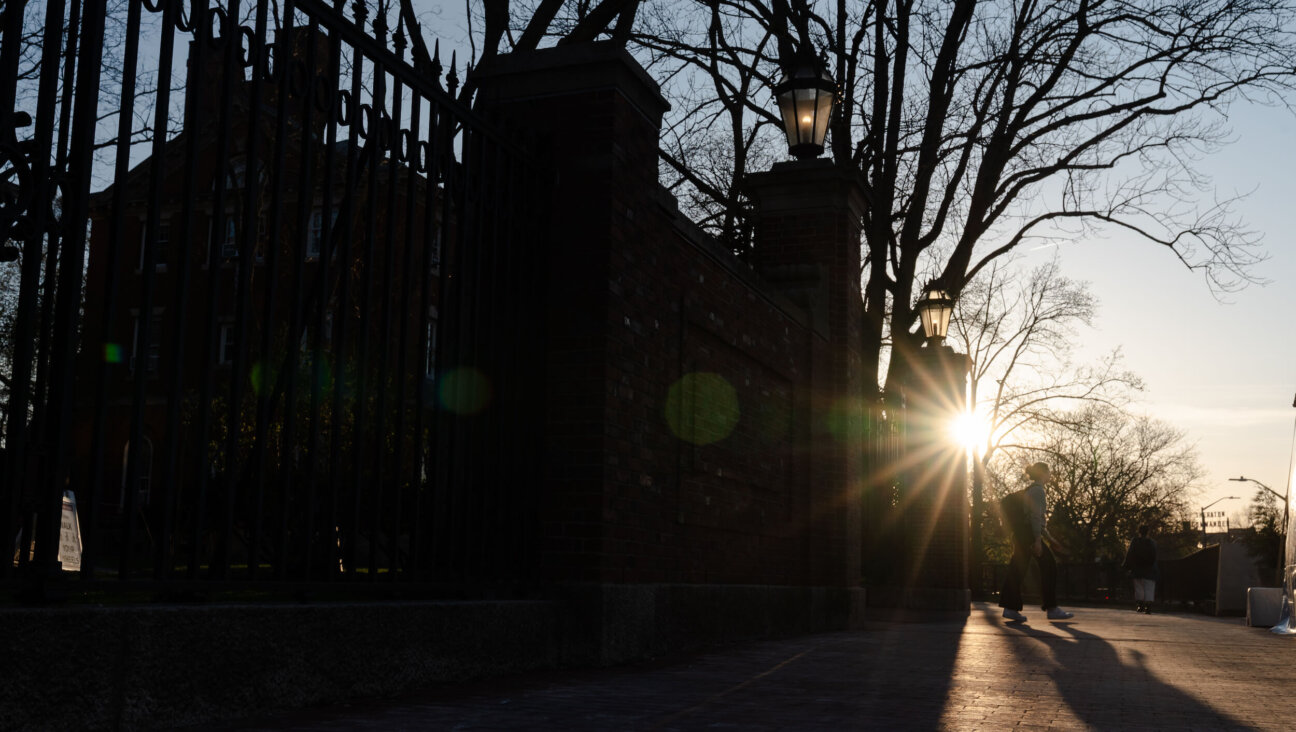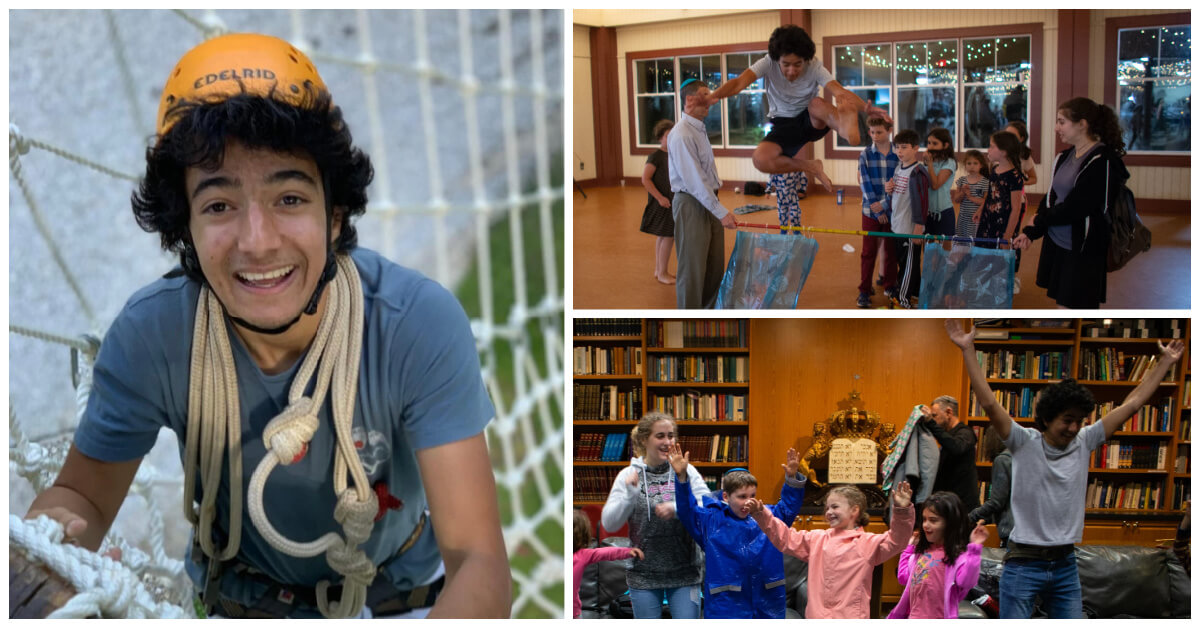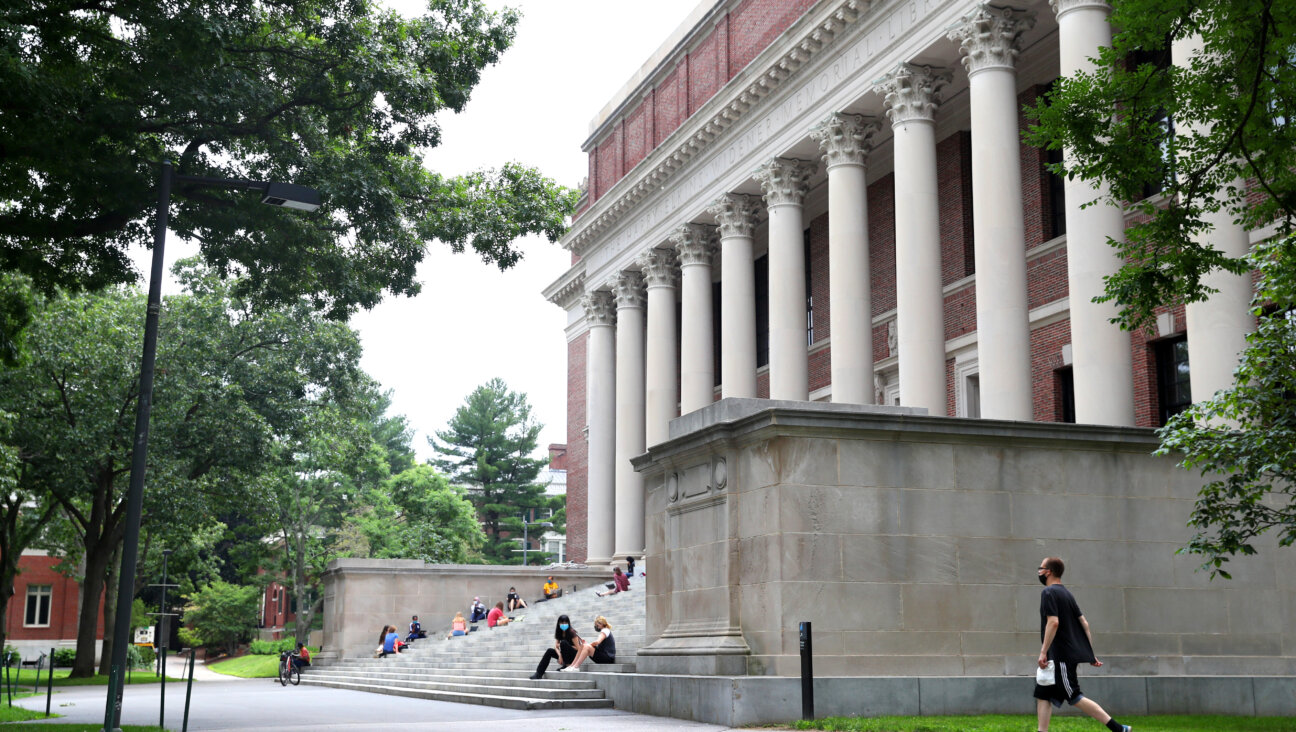Jewish Officials Profess Shock Over Report on Zionist Body
Embarrassed leaders of American Jewish organizations were absorbing the news this week that an international body under their control was at the center of a tangled Israeli scheme, detailed in a bombshell government report, to build illegal settlement outposts in violation of Israeli law, policy and international commitments.
The international body, the World Zionist Organization, or WZO, is described in the report as a pivotal player in the scheme, in which midlevel officials in various government ministries secretly channeled funds and resources to the illegal West Bank outposts. Several sources told the Forward that a WZO department, the Settlement Division, was used as a vehicle for many of the illegal activities, in part because its status as a nongovernmental organization shielded it from government oversight.
The controversial report, commissioned last year by Prime Minister Sharon, was submitted March 9. The Cabinet approved it March 13. The author, Talia Sasson, formerly Israel’s chief criminal prosecutor, paints a scathing picture of government and WZO officials who diverted funds, confiscated land — including privately owned Palestinian land — or turned a blind eye to “blatantly illegal” activity. Sasson said the illegal outposts began in the mid-1990s in response to a freeze on legal settlement construction by late prime minister Yitzhak Rabin.
The report has caused a furor in Israel. The Sharon government, which is obligated to freeze settlement building under President Bush’s road map to peace, promised to remove the outposts built since 2001 but largely failed to do so. Doves said the report proved the government was effectively abetting the illegal activity, while hawks said the role of government agencies proved the activity was not illegal.
WZO is a confederation of pro-Israel groups in dozens of countries, including such mainstays as Hadassah, B’nai B’rith and offshoots of the Reform and Conservative movements. American groups control 30% of the organization’s main governing bodies, including the World Zionist Congress, which is convened in Jerusalem every four years.
Most leaders of American Zionist groups said they had been unaware of the extent of WZO’s work in the territories. “If it were in the documents, there would have been big fights,” said Rabbi Ammiel Hirsch, former director of the Association of Reform Zionists of America. “We wouldn’t have let that slide.”
Others said American and world Jewish leaders simply failed to respond to mounting evidence. “This was hardly discussed, and everyone could have done a lot more,” said Moshe Kagan of the left-wing Meretz USA, a former member of WZO’s 24-person executive committee. “Not enough was done, not by Meretz and not by anyone else.”
Theodor Herzl founded the World Zionist Organization in 1897 to spearhead the creation of a Jewish state. Its Israeli operating arm, the Jewish Agency, essentially provided Israel’s governmental infrastructure when the state was declared in 1948. After independence, the world organization pursued tasks such as immigration, Jewish education and Israeli rural development.
Following the 1967 Six-Day War, WZO and the Jewish Agency were “reconstituted” as separate entities, with WZO retaining its ideological mission to Diaspora Jews as well as its tradition of raucous political debate. The Jewish Agency took over Israeli social services, currently a $420 million network of programs funded by Diaspora philanthropies.
The two bodies remain closely linked, sharing top staff and some joint facilities. The agency largely funds WZO’s $11 million budget.
Crucially, the post-1967 restructuring also split up the organization’s rural development operations. The Jewish Agency oversaw projects in Israel, while WZO took charge of settlement in the territories seized in the 1967 war.
Officials say they are careful not to use American donations to fund WZO activities in the territories, in order to avoid violations of U.S. policy that could compromise the tax-exempt status of U.S. Jewish charities.
Over time, the WZO Settlement Division became a semi-independent unit financed with Israeli government funds, currently $40 million a year. WZO governing bodies do not review the division budget, which is under the purview of the state comptroller, officials said.
The lines between WZO and the Jewish Agency are not always clear, however. While Settlement Division activities are funded by the government, the infrastructure of WZO, including the Settlement Division, is funded largely by the Jewish Agency, which in turn is funded by American Jewish federations.
The Settlement Division’s work in the territories was originally a topic of WZO debate. At the 1982 World Zionist Congress, a resolution to end the WZO’s role in settlements was narrowly defeated in a procedural maneuver by WZO’s Likud-appointed chairman. Soon afterward, Ariel Sharon, who had been forced to resign as defense minister after the 1982 Lebanon War, was nominated to head the division, but was rejected because liberal delegates feared he would override oversight rules.
In the mid-1980s, however, feuding over religious pluralism eclipsed debate over settlements. Delegate elections to the World Zionist Congress in 1987 saw the entry for the first time of a slate representing Reform Judaism, which swept the American balloting that year.
According to Rabbi Eric Yoffie, founding director of the Reform Zionist group and now president of the Union for Reform Judaism, debate over settlements dissipated during the 1980s, in part because it became clear that the Israeli government was calling the shots. “At a certain point, people saw this was not going to be resolved in the WZO, so there was just no purpose to further debates,” Yoffie said.
In recent years, evidence has mounted implicating the Settlement Division in dubious activities. Numerous reports by the Israeli Peace Now organization detailed the web of agencies building outposts. In January, a Knesset committee discussed WZO’s role in illegal outposts.
“If people didn’t suspect this on some basic level, there was something wrong with them,” said Jamie Levin, director of the Labor Zionist Alliance, now known as Ameinu.
The publication of the Sasson report has reignited WZO debate over the Settlement Division. A day after the report’s release, 12 members of WZO’s executive committee wrote a letter to Sallai Meridor, who chairs both WZO and the Jewish Agency, calling for an “extraordinary meeting” to discuss the report.
Sasson recommended that the government cut the Settlement Division’s funding and end its role in the territories. Two members of the WZO executive committee wrote a separate letter calling for these recommendations to be implemented immediately, despite a call by Sharon for the division to remain intact.
Leaders of right-wing American groups, who tend to support West Bank settlements in principle, expressed less concern about the Sasson findings. Mandell Ganchrow, director of Mizrachi Religious Zionists of America, said he saw no need for immediate change: “This will have to be dealt with by the government. It’s not fair to point a finger and ask where was the WZO. This had to do with the will of the government of the State of Israel.”
Michael Jankelowitz, spokesman for both the Jewish Agency and the World Zionist Organization, said WZO never raised concerns about the work of the Settlement Division, because it was always done under government direction: “Everything we did was at the behest of the government. We were not aware that these requests were illegal.”
The Forward is free to read, but it isn’t free to produce

I hope you appreciated this article. Before you go, I’d like to ask you to please support the Forward.
Now more than ever, American Jews need independent news they can trust, with reporting driven by truth, not ideology. We serve you, not any ideological agenda.
At a time when other newsrooms are closing or cutting back, the Forward has removed its paywall and invested additional resources to report on the ground from Israel and around the U.S. on the impact of the war, rising antisemitism and polarized discourse.
This is a great time to support independent Jewish journalism you rely on. Make a Passover gift today!
— Rachel Fishman Feddersen, Publisher and CEO
Most Popular
- 1

News Student protesters being deported are not ‘martyrs and heroes,’ says former antisemitism envoy
- 2

News Who is Alan Garber, the Jewish Harvard president who stood up to Trump over antisemitism?
- 3

Politics Meet America’s potential first Jewish second family: Josh Shapiro, Lori, and their 4 kids
- 4

Fast Forward Suspected arsonist intended to beat Gov. Josh Shapiro with a sledgehammer, investigators say
In Case You Missed It
-
Fast Forward Jewish students, alumni decry ‘weaponization of antisemitism’ across country
-

Opinion I first met Netanyahu in 1988. Here’s how he became the most destructive leader in Israel’s history
-

Opinion Why can Harvard stand up to Trump? Because it didn’t give in to pro-Palestinian student protests
-

Culture How an Israeli dance company shaped a Catholic school boy’s life
-
Shop the Forward Store
100% of profits support our journalism
Republish This Story
Please read before republishing
We’re happy to make this story available to republish for free, unless it originated with JTA, Haaretz or another publication (as indicated on the article) and as long as you follow our guidelines.
You must comply with the following:
- Credit the Forward
- Retain our pixel
- Preserve our canonical link in Google search
- Add a noindex tag in Google search
See our full guidelines for more information, and this guide for detail about canonical URLs.
To republish, copy the HTML by clicking on the yellow button to the right; it includes our tracking pixel, all paragraph styles and hyperlinks, the author byline and credit to the Forward. It does not include images; to avoid copyright violations, you must add them manually, following our guidelines. Please email us at [email protected], subject line “republish,” with any questions or to let us know what stories you’re picking up.











